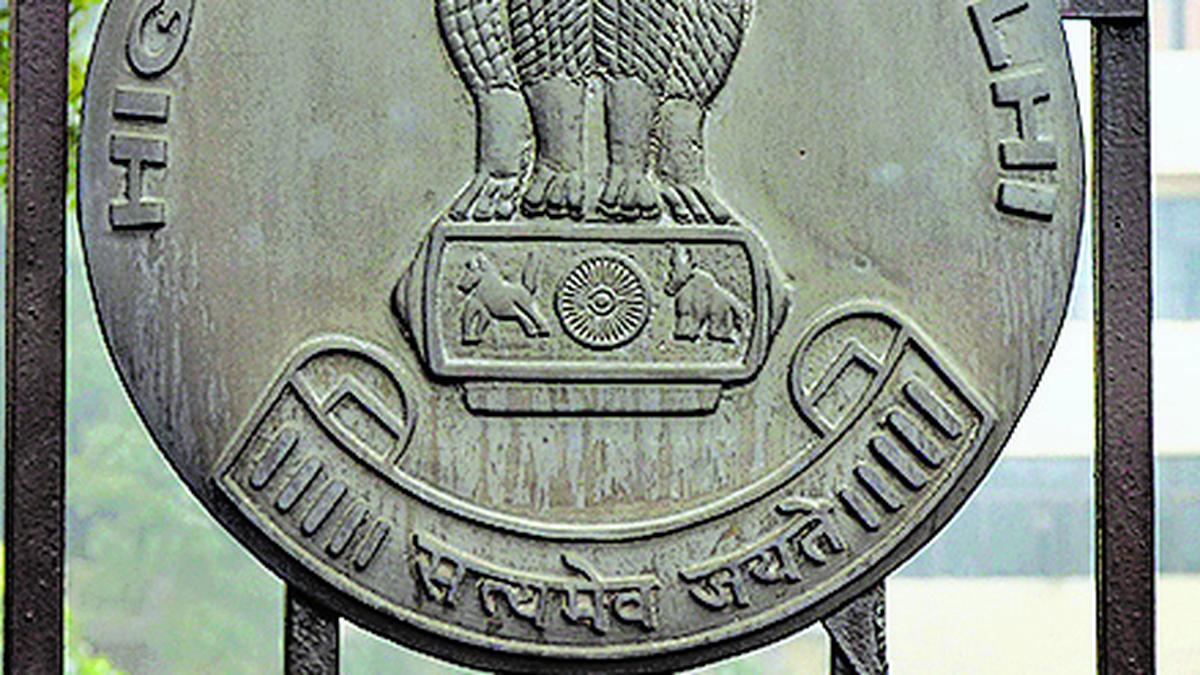
Delhi HC fines petitioner who sought info on SC Collegium’s criteria for appointments
The Hindu
Delhi High Court dismissed apetition seeking a direction to the Supreme Court Collegium to provide detailed reasons while refusing to accept recommendations for appointment of High Court judges
The Delhi High Court has dismissed a petition seeking a direction to the Supreme Court Collegium to provide detailed reasons while refusing to accept recommendations for appointment of High Court judges.
Petitioner Rakesh Kumar Gupta also sought directions to the top court collegium to reveal the “qualification” needed for appointment as a High Court judge, and publish monthly data related to pending recommendations and their disposal.
Also read | Supreme Court Collegium’s quiet transparency is driving a change
The High Court said it “cannot sit in appeal over the subjective satisfaction of the Supreme Court’s Collegium”. Terming the petition a “complete waste of judicial time”, the High Court imposed a cost of ₹25,000 on the petitioner.
The petitioner, who claimed to be a victim of delay in disposal of his case pending in the Rohini district court here, said the “high” rejection rate of recommendations by the collegium of the Supreme Court was “extremely disturbing”.
He stated that “there is a communication gap between the top court and the High Courts regarding the criteria for appointment of High Court judges”. The petitioner claimed that in 2023, the rejection rate was about 35.29% against 4.38% in 2021.
The High Court, however, said the petitioner had no locus standi and did not give any reason how he was a victim. “The averments made in the writ petition are extremely incoherent. This petition is purely a ‘publicity interest litigation’,” the High Court said.

“Writing, in general, is a very solitary process,” says Yauvanika Chopra, Associate Director at The New India Foundation (NIF), which, earlier this year, announced the 12th edition of its NIF Book Fellowships for research and scholarship about Indian history after Independence. While authors, in general, are built for it, it can still get very lonely, says Chopra, pointing out that the fellowship’s community support is as valuable as the monetary benefits it offers. “There is a solid community of NIF fellows, trustees, language experts, jury members, all of whom are incredibly competent,” she says. “They really help make authors feel supported from manuscript to publication, so you never feel like you’re struggling through isolation.”

Several principals of government and private schools in Delhi on Tuesday said the Directorate of Education (DoE) circular from a day earlier, directing schools to conduct classes in ‘hybrid’ mode, had caused confusion regarding day-to-day operations as they did not know how many students would return to school from Wednesday and how would teachers instruct in two modes — online and in person — at once. The DoE circular on Monday had also stated that the option to “exercise online mode of education, wherever available, shall vest with the students and their guardians”. Several schoolteachers also expressed confusion regarding the DoE order. A government schoolteacher said he was unsure of how to cope with the resumption of physical classes, given that the order directing government offices to ensure that 50% of the employees work from home is still in place. On Monday, the Commission for Air Quality Management in the National Capital Region and Adjoining Areas (CAQM) had, on the orders of the Supreme Court, directed schools in Delhi-NCR to shift classes to the hybrid mode, following which the DoE had issued the circular. The court had urged the Centre’s pollution watchdog to consider restarting physical classes due to many students missing out on the mid-day meals and lacking the necessary means to attend classes online. The CAQM had, on November 20, asked schools in Delhi-NCR to shift to the online mode of teaching.









